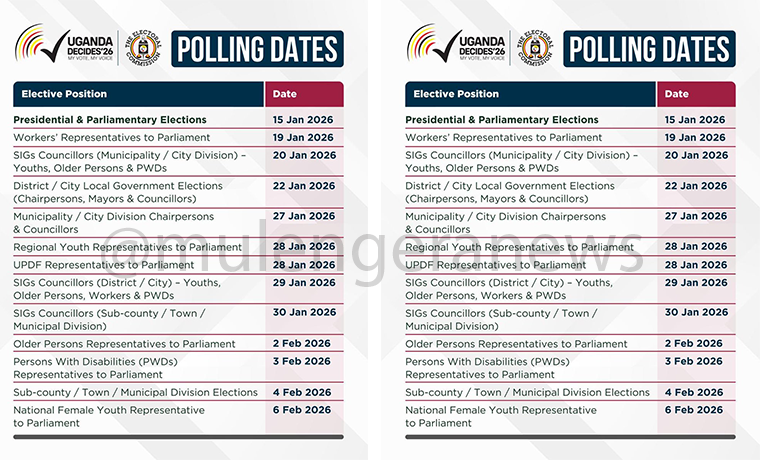By Our Reporters
Very reliable sources at URSB reveal that the process is on to have Vodafone Telecom effectively put under receivership following failure by the company’s management to run its affairs while continuing to meet financial obligations to creditors and service providers. Receivership in simple terms means the company leadership concede they have failed to steer the company in a way that assures stakeholders especially the creditors that their money will be paid. In legal terms, it’s an equitable remedy aimed at ensuring creditors’ interests are sufficiently protected in case the company goes under. The administrative receiver ensures that even if the company goes under, its assets are securely available for especially secured creditors to recover what is due to them. For the case of Vodafone, things have been so bad that the data service has been off for more than three weeks now and nobody is explaining to the 62,998 subscribers what is going on. A recent UCC survey showed that, despite massive investment in mostly advertising, Vodafone had only 62,998 registered sim cards (mostly data) in the just concluded sim card validation exercise. This was too small compared to MTN’s 18,048,353; Airtel’s 10,076,051 and Africell’s 3,588,583. In a last minute effort to save the company, Mark Shoebridge, the extravagant CEO that strangled UTL and was indicted in a voluminous Parliamentary report, was brought in but fled within just one week having seen the enormity of the task at hand. Shoebridge had been brought in by Lars the Vodafone Africa Group CEO based in Zambia closely working with Russel Saunders, an old friend to Shoebridge.
AIRTEL BENEFITS:
The chaos at Vodafone greatly benefited Airtel Uganda whose 4G data network attracted most of the 62,998 Vodafone subscribers who can simply not afford to do without internet for purposes of their businesses. A week after Vodafone failed to get back onto the network, many subscribers flooded Airtel shops to buy for themselves the airtel mifi. Many top corporate VIP subscribers (like radio personalities Ahamed Bogere Masembe and Joel Isabirye) recently took to the social media to vent their anger wondering why the regulator UCC could have ever licensed a company like Vodafone whose capability in the end has proved to be very limited. With all this frustration, many such VIP subscribers have since shifted to airtel whose data isn’t only cheaper but is of higher quality in terms of speed and being easily accessible in the suburbs.

HOW VODAFONE CHAOS UNFOLDED:
Mark Shoebridge was clandestinely recruited December last year and started work as CEO on a Wednesday which to many telecom industry watchers was proof of how hopeless the situation at Vodafone had become. Mark Shoebridge, an Irishman, had heavily been accuse in the Parliamentary report on UTL whose collapse was squarely blamed on him as the MD at the time Nandala Mafabi blew the whistle calling for Parliament’s intervention into the rot at the once very vibrant telecom giant. It’s clear in that Parliamentary report that Shoebridge is the man under whose watch UTL sunk to near bankruptcy whereby its liabilities clearly exceeded its assets by several hundreds of billions. In the records of Parliament, Shoebridge stands accused of falsifying UTL’s indebtedness whereby his management (prior to their being fired) declared that UTL debt was Shs718bn which on verification reduced to Shs533bn. This shows the creditors’ claim against UTL had been inflated by Shs185bn. Up to this day, MPs led by Nandala Mafabi maintain that the Irishman must be punished and criminally prosecuted for the mess he presided over at UTL (refer to the Parliamentary report on UTL). Shoebridge was hired as CEO UTL by Libyan majority shareholders who the Parliamentary report established were out to cheat the government of Uganda which was the other shareholder in UTL. Shoebridge first joined UTL as head of fixed lines business which he held for two years before the Libyans elevated him to the post of MD for the same company. At Vodafone, the very extravagant Irish expatriate briefly replaced John Ndego, a Nigerian who had served as CEO for Vodafone whose share of the market had always stagnated below 2%. A recent report by UCC showed that, despite massive investment in mostly advertising, Vodafone had only 62,998 registered sim cards (mostly data) in the just concluded sim card validation exercise. This is too small compared to MTN’s 18,048,353; Airtel’s 10,076,051 and Africell’s 3,588,583.
NIGERIAN NDEGO’S EXIT:
According to reliable sources close to the sinking Vodafone funders (AFRIMAX which owns Vodafone Africa and got funding from Nisei and NED bank of UK), all stakeholders have for sometime been concerned and afraid of the impending collapse of the Kamwokya-based business. In fact Ndego quit after developing irreconcilable differences with Lars the Vodafone Group CEO for the African Division. Lars is based in Zambia which is the main Vodafone headquarters for the African market. Lars is a Norwegian under whose watch Vodafone Africa has failed to gain its foot print in the African continent where they unprofitably operate in only 4 markets (Uganda, Zambia, Ghana and Cameroon). Lars sometime back called in his long term corporate friend Russel Saunders, a British expatriate who previously worked under Shoebridge at UTL. As project manager at UTL, Saunders made so many negligent mistakes prompting then UTL MD Ali Amir (a Libyan) to recommend his arrest and prosecution. He fled the country to escape tough action by Ali Amir. Now he is among Lars’ corporate henchmen calling shots in Vodafone Zambia which controls and oversees the operations in the other three African markets. Saunders is the one who had recommended Shoebridge to Lars and influenced his recruitment as the very short lived CEO/MD Vodafone Uganda. There were always fears that the new CEO’s ineptness was only going to expedite the collapse of Vodafone. Ndego, who quit early December as the Vodafone CEO partly protesting exclusion and mistreatment of Ugandan employees, kept saying “I can’t work with Russel Saunders and Lars anymore.” When he quit there was a huge vacuum at Vodafone Uganda. His departure actually created anxiety among the company’s clients including a consortium of NGOs operating under brand name Design Huts next to Bata shop on 5th street Industrial Area. “Things don’t look good at all for Vodafone because how do you recruit a person like Shoebridge who was clearly indicted in the Parliamentary report that remains unchallenged? We are worried for the future of our partnership with them,” a worried NGO official remarked in December moments after Shoebridge took charge at Kamwokya. The source added that they have tried to protest the declining trend at Vodafone but Lars is too indifferent to care. For those who may have forgotten already, the Parliamentary report faulted Shoebridge for a number of things including issuing sham fictitious creditors with blank cheques which permitted them to cheat the company of UTL. He was faulted for paying out a whooping USD385,000 to a company called BCS with which UTL had entered a swap deal meaning there was no obligation to pay out any money. The MPs also unearthed billions that were swindled under a sham fuel storage deal. They also faulted Shoebridge for paying out hundreds of millions to a sham company under the guise of maintaining UTL masts yet in actual sense no such activity was being undertaken. The MPs asked the representative of the contracted company BCS to take them to the masts they were maintaining and the representative, whose entity was earning Shs500m per month, couldn’t locate any mast. All this was attributed to Shoebridge’s poor management and supervision failure. This resulted into UTL network being inaccessible all the time because the masts would be off. The MPs also blasted Shoebridge for being very extravagant when the UTL Company he was leading was collapsing under debts and liabilities stretching over Shs700bn by his own admission. The Parliamentary report showed that as CEO, Shoebridge was indifferently earning Shs109m per month in salary; $2,000; $5,000 as housing allowances and $500 as monthly utility expenses. All these hefty perks were being earned by CEO Shoebridge at a time the company was sinking.

VODAFONE DEFAULTING:
As of December 2017, there was glaring evidence that Vodafone wasn’t doing well at all and the concerned stakeholders were already disclosing a couple of things including defaulting to make its payment obligations. As of December, Vodafone hadn’t paid annual licensing fees to UCC. It was in default for 2 years and was supposed to have been switched off if it wasn’t the lenience of UCC to keep being patient. The UCC arrears actually stretch in billions. Vodafone had also for two years failed or defaulted on paying rent for the Eaton Towers masts it uses to keep serving its customers who were mostly restricted to the Central Business District of Kampala. This is why customers have been losing Vodafone network the moment you got out of the CBD and nearby suburbs. You for instance couldn’t have Vodafone network access in places as near as Gayaza. Vodafone as per now owes Eaton Towers more than Shs2bn and the defaulting has been on for two years now prompting Eaton Towers to threaten switching them off. They also had interconnection debts with fellow telecom companies including one company that owed Shs1.4bn as of December.

UCC as of December was threatening to withdraw the Vodafone license immediately the moment Eaton Towers switched them off their masts for nonpayment of rental fees. That was always expected to be the end of Vodafone Uganda. Many Ugandans had been fired in a bid to cut costs including NBS’ Rukushana Namuyimba (who was head Corporate Affairs) and she joined DFCU bank. The most senior Ugandan who still had a top executive position at Vodafone was Derrick Sebale, the Chief Technical Officer, who too was very frustrated seeing the Company nearing its collapse. Closing the Ugandan operations leaves Zambia the only Vodafone African market because the situation is even worse in the other two markets namely Ghana and Cameroon. Whereas Cameron recently closed, a buyer is being sought to acquire Vodafone Ghana. All these problems, according to reliable sources, are squarely attributed to Group CEO Lars and his subordinate Russel Saunders who concentrate on paying very high salaries and allowances to top executives as opposed to investing company money in core things.

FIRING STAFF:
As of December 2017, the workers mostly locally hired Ugandans started to be gradually fired. And as of now Vodafone retains less than 40% of the staff it started with in 2014.The most prominent among those that were laid off was Jackie Namara who was the Chief Marketing Officer-CMO- supervising the likes of TV personality Rukushana Namuyimba. The affected Ugandan staffers had as of last December agreed to depart in peace without raising much dust for a number of reasons including desire to quietly find new employment without a fuss. The second reason was that the struggling Vodafone management improvised and agreed to pay them compensation equaling three (3) months pay. That way Vodafone complied with the requirements of the Employment Act which requires the equivalent of three months’ pay in lieu of notice to fire an employee. “We are still young and vibrant with a good future and quarrelling for a job isn’t good for us at all. You attract unnecessary attention and scrutiny which can frustrate your efforts to move on to new employment. Besides, it affects your bargaining power for a good salary at the new job once the prospective employer gets to know that you have been fired. That is why we handled it diplomatically without any fuss. We were happy and Vodafone too was happy,” said a former employee who has since found new employment with another corporate company. The knifing of Jackie Namara hurt many guys at Vodafone who looked at her for inspiration because she had abandoned a more stable and certain job at Stanbic bank to go and work with Vodafone on promise of a higher pay. Because Vodafone had heavily invested in their skilling and retraining, many of the fired Ugandans easily found new employment and moved on. The financial controller, who was also a Ugandan (names withheld), was fired along with Namara, Rukushana Namuyimba and others. The firing of staff was in a bid to comply with stringent terms and conditions imposed on the Vodafone Uganda by their two bankers which also happen to be the chief shareholders in AFRIMAX which owns Vodafone Africa. The two bankers had also become shareholders and these were Nisei and NED bank of UK. “The two European banks had set the Vodafone Uganda management targets which they consistently failed to hit. The sales weren’t growing and returns weren’t looking good at all. They asked management which plans are you having to reverse this loss-making trend and they responded by knifing workers to optimize costs as the shareholders couldn’t stand this endless making of loss. The business couldn’t break even because even the figure (of 62,998 Vodafone registered subscribers) they were showing shareholders wasn’t authentic. It was exaggerated to paint a more optimistic picture,” said a source closely in touch with the two Vodafone bankers. Sources say that out of the close to 400 direct and indirect employees Vodafone started with in 2014, less than 100 were still on board as of last December. The knifing of the employees unfortunately didn’t yield the expected results as the loss-making trend has only worsened. Contrary to what many always thought, what existed as Vodafone Uganda had nothing to do with the well thriving Vodafone UK. This Vodafone we always had in Uganda belonged to a company trading as AFRIMAX Vodafone which paid the UK Vodafone for permission to use its brand for marketing purposes into the Ugandan market that is clearly already over supplied with telecom services. In Uganda, Vodafone began in 2014. Reliable sources said that the Vodafone Uganda shareholders (basically the two European banks) had long given up on the possibility of turning round the company’s fortunes and stopped injecting in cash. That’s why UCC license fees went unpaid for two years and Eaton Towers was pondering switching off Vodafone. As of January this year, the Vodafone management was struggling to keep the company operating relying mostly on the little revenues they would generate from the company’s plummeting revenues. The other concern was that whenever a Ugandan was fired, they would be replaced by Zambian expatriates who earned even much more in hefty salaries and allowances and thereby further complicating an already difficult situation. For example, CMO Jackie Namara was instantly replaced by Mr. Progress Chisenga from Zambia. The same applied to the Ugandan PR marketing agency that was handling the Vodafone adverts and messages. It was replaced by a PR Media agency headed by a gentleman called Yona Namawa from Zambia. This was the case because Lars the Vodafone Africa Group CEO based in Zambia along with his right hand man Russell Saunders greatly valued Zambians or their proxies while treating Ugandan employees with utter contempt. To comment on this & other Mulengera news stories, reach us on 0703164755


























